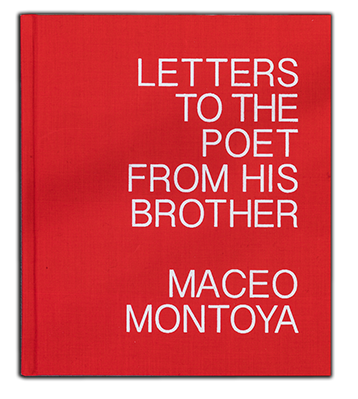
Selected Praise
"Son to a painter, brother to a poet, how could Maceo Montoya not move in tandem to his family’s journeys? With this heartfelt self-portrait of an artist, Montoya honors his distinguished lineage by claiming an independent voice through language and imagery that matches the labors of the well-known Montoya legacy. That voice, limned with sorrow and loss, tells the personal stories that shaped the visions of a household of artists, including his own. But to that end, this touching book also celebrates community, how one man’s trek on the hard-won path to individuality led him back to the Chicano home, the birthplace of muse and music, narrative and lyric, where he invariably discovers that: 'the great pain in my heart, the aching store of my creativity, has never been mine alone.'"
- Rigoberto González
"'[W]here does it all come from, Andrés? The images, the words?' Posed early on, the question unleashes a mestizaje-of-a-tome—that is: a book that marries word and image, prose and poem: a hybrid work of art as personal and vulnerable and moving as anything I’ve read in a long while. This is risky writing, maybe even counter-intuitive if one is pre-occupied with forging a certain kind of 'career.' I couldn’t stop reading, continuing to the end in one sitting. Maceo Montoya, the artist-writer, opens multiple fronts: dialogues with the living (father, art critic, lover); dialogues with the dead (beloved brother); indelible images from my native California—too often overlooked. But the exquisite prose poem narratives—unapologetic romanticismo in my view—are what completely won me over."
- Francisco Aragón
"This is a beautiful book. More than a celebration of the life and legacy of poet Andrés Montoya, these images, in text and drawings and paintings, give us a glimpse into the mind and heart of the artist who is Maceo Montoya, his obsessions, his fears, his loves, and the debt he has to the community that helped nurture him. A modern-day Goya, the works of Montoya can go from tributes to the tiny moments in the lives of ordinary people (people ordinarily ignored) to the tragedy of exploitation, from the light of day to the sadness of days. This is a true portrait of an artist as a young man, as a brother, a son, and a member of a rich artistic community."
- Daniel Chacón
"Letters to the Poet from His Brother is a brave display of Maceo Montoya’s immense heart and singular brilliance. I wept while reading the letters between Maceo and his late brother, the poet Andrés Montoya, “a mean snarling giant who found salvation in a poet’s delicate labor.” I exalted in the revelatory narratives of the iconic Montoya family, the famed artists and writers. If there is a central voice where grace, art, writing, brotherhood, and loss converge so perfectly, it belongs to Maceo Montoya. The words “celebratory” and “triumphant” should not be used lightly, but somehow he has owned and redefined them in this gift of a book. Every poet, every artist, anyone who has experienced a tremendous loss---read this and be truly uplifted."
- Lee Herrick
"Maceo Montoya succeeds in creating a unified and emotive work, but perhaps more important, the books succeeds as a literary feat, for by blending these three genres it touches readers’ hearts and minds. Along with rich, poetic prose, the book offers stunning images that complement and enhance the narrative. This is a beautiful book inside and out…”
- Norma Elia Cantú in Aztlán: A Journal of Chicano Studies
"Skillfully melding his artistic images with his recollections, the eulogy becomes transformed into a haunting dirge…The publication is an elegantly creative production, the layout of the elegiac text separated with the artist’s paintings, both in color and black & white, along with a pull-out section, and individual renderings of art work, make this an exceptional gift for the reader. While some may find the paintings somber, these artistic renderings boldly portray a culture this author wishes to define and promote."
- San Francisco Book Review
